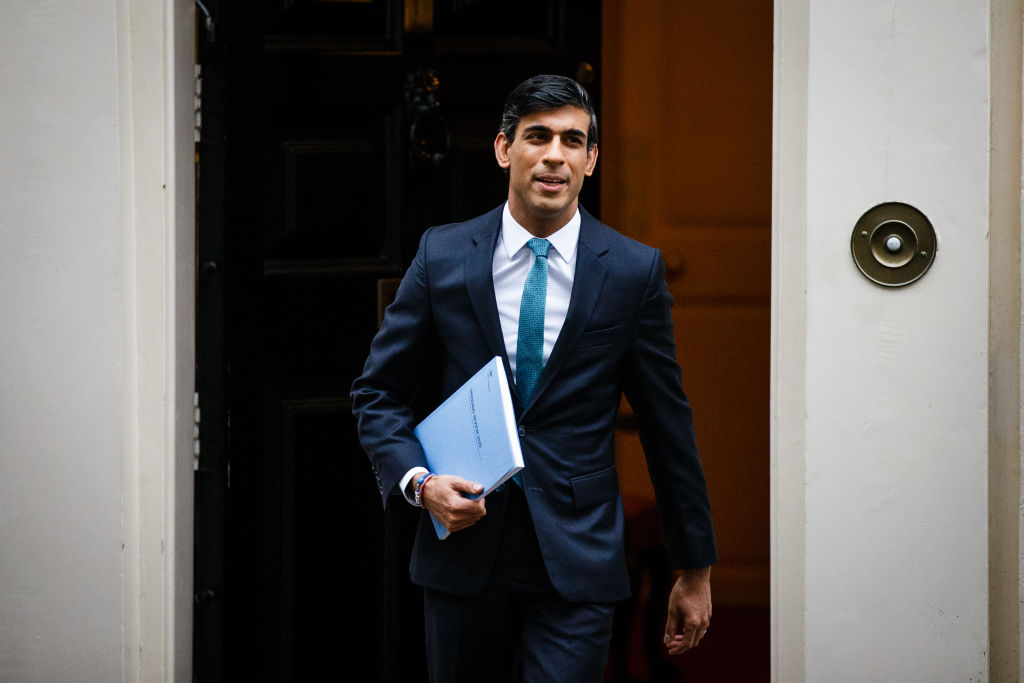Sunak under growing pressure to axe pensions ‘triple lock’
1st September 2021 13:13
by Katie Binns from interactive investor
A policy think tank has added to the calls for the chancellor to drop the part of the triple lock which ties state pensions to general wage increases.

Chancellor Rishi Sunak should drop the 'triple lock' as average wage rises of 8.8% indicate the state pension could increase to £10,000 a year, according to influential think tank the Institute for Government.
The triple lock is a formula used to calculate how much the state pension rises each year. Pension payments increase in line with whichever of the following is highest: wage rises (8.8% this year), CPI inflation (now 2.4%), or 2.5%.
This means if the triple lock is applied, the new state pension will rise by £15.80 a week to £195.40 in April 2022 - an increase of £821.60 a year. The old basic state pension would increase by £12.10 a week to £149.70 - an extra £629.20 a year.
The Institute for Government argues that it would be reasonable to avoid such a “perverse” increase.
- Are you saving enough for retirement? Our pension calculator can help you find out
- A guide on how investors can protect against inflation
- Take control of your retirement planning with our award-winning, low-cost Self-Invested Personal Pension (SIPP)
Sunak is considering telling Britain’s 12 million pensioners that the pandemic has artificially inflated the official wage figures - millions had their pay cut last year due to the furlough scheme but salaries are now recovering resulting in a contrived spike in wages - and a new formula is needed to calculate the annual rise which takes place each year in April.
While the Conservatives promised in the last election to keep the triple lock, some argue it should be scrapped to stop the pension bill rising by £4 billion next year - money needed for huge pandemic-related costs.
One option may be a temporary double lock which would exclude the wage data. Another option may be to average out the data over two years.
Another solution would be to use a figure based on ONS data which tracks the growth in underlying earnings in the economy and strips out the distortive effects of the pandemic. The latest data shows underlying earnings grew between 3.5% to 4.9%.
This means if the underlying earnings’ measure is applied - say 3.5% - the new state pension will rise by £6.29 a week to £185.89 in April 2022 - an increase of £327.08 a year.
- Bank of England official says retirement age may need to rise to fight recessions
- Pensions jargon buster
The old basic state pension would increase by £4.82 a week to £142.42 - an extra £250.64 a year. By doing this, the government could cut the state pension bill by around £3.5 billion.
“Using underlying earnings rather than headline growth makes sense as a way to address the problem of strangely high wage growth figures coming out of the pandemic," said Rebecca O'Connor, Head of Pensions and Savings at interactive investor.
"It should also appease those who would scrap the triple lock protection for good on the basis of this anomalous year of wage data. It’s still on the high side, but more in line with previous years.
“The triple lock is a valuable guarantee for those dependent on the state pension for retirement income, both now and in the future," O'Connor continued.
“However, it has attracted criticism because it can result in pensioner benefits rising more than those received by workers. Some also think it is giving money they don’t need to wealthier pensioners.
“If reform is on the cards, then a knee jerk reaction to one year of bizarre unintended consequences caused by the global pandemic should not be the catalyst.”
A state pension covers only basic living expenses. Most full-time workers will get a company pension when they start a job. Together with the state pension you can enjoy a more comfortable retirement.
However, to experience a retirement that includes holidays and hobbies, it’s important to have a private pension as well, such as a self-invested personal pension, or SIPP.
This gives you a huge choice of where to invest your money on a tax-free basis, from equities funds and bonds, to gold and property.
SIPPs are ideal for knowledgeable investors. If this isn't you, you may wish to consult a financial adviser.
These articles are provided for information purposes only. Occasionally, an opinion about whether to buy or sell a specific investment may be provided by third parties. The content is not intended to be a personal recommendation to buy or sell any financial instrument or product, or to adopt any investment strategy as it is not provided based on an assessment of your investing knowledge and experience, your financial situation or your investment objectives. The value of your investments, and the income derived from them, may go down as well as up. You may not get back all the money that you invest. The investments referred to in this article may not be suitable for all investors, and if in doubt, an investor should seek advice from a qualified investment adviser.
Full performance can be found on the company or index summary page on the interactive investor website. Simply click on the company's or index name highlighted in the article.
Important information – SIPPs are aimed at people happy to make their own investment decisions. Investment value can go up or down and you could get back less than you invest. You can normally only access the money from age 55 (57 from 2028). We recommend seeking advice from a suitably qualified financial adviser before making any decisions. Pension and tax rules depend on your circumstances and may change in future.